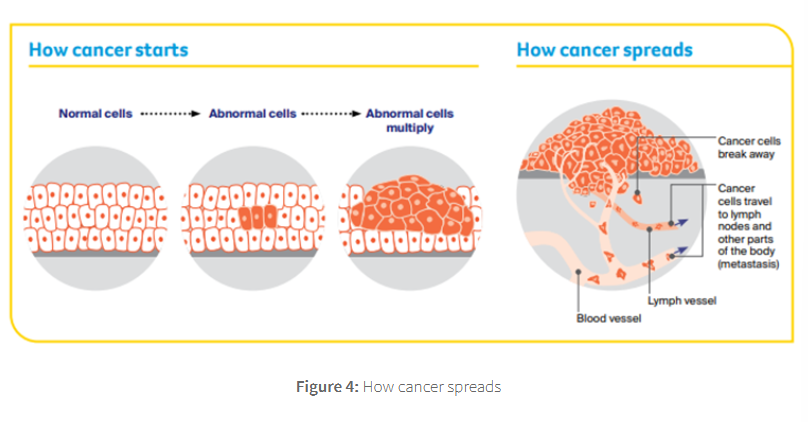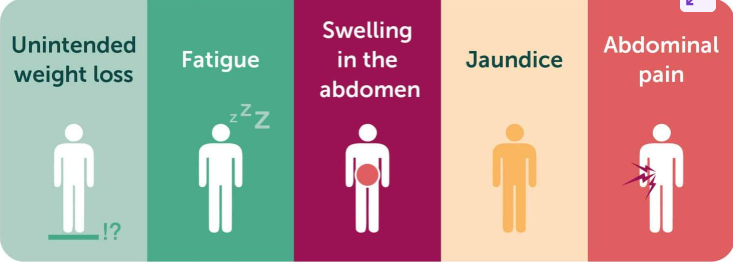2.2 Pathophysiology secondary liver cancer
1/16
There's no tags or description
Looks like no tags are added yet.
Name | Mastery | Learn | Test | Matching | Spaced |
|---|
No study sessions yet.
17 Terms
secondary liver cancer is much more common than primary liver cancer
this is when cancer has developed somewhere in the body then spread via the bloodstream/ lymphatic system to the liver

if the cells stay in the liver and make a tumour
this is called metastasis
the most common places for cancer to develop before spreading to the liver
bowel
breast
pancreases
stomach
oesophagus
lung
melanoma,
usually patients already know they have cancer when the metastasis are found
occasionaly secondary cancer will be found before the primary
If the primary cancer cannot be located
then it is known as cancer of unknown primary

symptoms of liver cancer are not noticable in the early stages
as the disease progresses several signs and symptoms appear
unintentional weight loss
losing weight without trying is due to the body’s inability to process nutrients properly
upper abdominal pain/ discomfort
pain or sensation of fullness in the upper right side of the abdomen where the liver is located is common as tumours grow
swelling in the abdomen, ascites
fluid build-up in the abdomen can cause bloating or distention often related to liver failure or cirrhosis that causes liver cancer
jaundice
yellowing of the skin and eyes occurs when the liver cant process bilirubin, leading to tis acumination in the body
fatigues and weakness
extreme tiredness or weakness is often reported by patients as the liver reduced function impacts the body’s overall energy level
nausea or vomiting
digestive symptoms like nausea and vomitting can develope as liver function deterioates
itching/ pruitus
bile build-up in the bloodstream due to liver dysfunction can cause persistent itching
dark urine/ pale stools
dark colourines urine + pale stools may result from liver issues affecting bile production and excretion
many of the previous symptoms would be classed as red flag symptoms
symptoms that should stand out to healthcare professionals as something that could be serious medical conditions
These symptoms can sometimes be mistaken for other liver-related conditions,
so it's important to seek medical evaluation if they occur, especially in individuals with known risk factors like cirrhosis or chronic hepatitis.
watch video